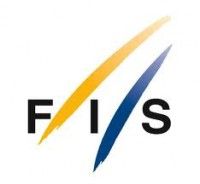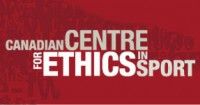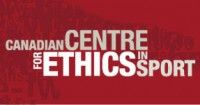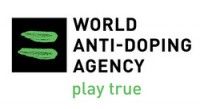 May 13, 2013 (Montreal, QC) – The World Anti-Doping Agency (WADA) made significant progress in its mission to enhance global support in the fight against doping in sport during the Agency’s Executive Committee and Foundation Board meetings held in Montreal this weekend.
May 13, 2013 (Montreal, QC) – The World Anti-Doping Agency (WADA) made significant progress in its mission to enhance global support in the fight against doping in sport during the Agency’s Executive Committee and Foundation Board meetings held in Montreal this weekend.
The meetings focused mainly on proposed amendments to the third draft of the 2015 World Anti-Doping Code in context of the Code Review Process with stakeholders that commenced in November 2011. The review process included three phases of consultation and will conclude at the World Conference on Doping in Sport in Johannesburg, South Africa, November 12-15, 2013.
A large number of submissions were received from stakeholders during the three phases of the consultation process. There have been nearly 4,000 individual comments on the Code and International Standards.
“WADA values the input of these stakeholders and is pleased with the level of their engagement throughout the review process,” confirmed John Fahey, WADA President. “The Agency continually seeks to enhance the framework that supports the anti-doping system, and revisions depend on these contributions.”
With the third draft, the Code becomes clearer in language, shorter in length, and the articles stronger. The amendments put forward provide for:
– Longer periods of ineligibility for real cheats and more flexibility in sanctioning in other specific circumstances.
– Consideration of the principles of proportionality and human rights.
– Assistance in the increasing importance of investigations in the fight against doping.
– Encompassing Athlete Support Personnel who are involved in doping.
– Emphasis on the concepts of smart test distribution planning, smart menus for Sample analysis, and smart Sample storage.
– Added clarity and equality in balancing the interests of International Federations and National Anti-Doping Organizations.
Code Compliance Strategy
The WADA Foundation Board acknowledged the Code compliance strategy for monitoring compliance of the “2015 World Anti-Doping Code.”
WADA has looked at ways to improve the compliance report and to ensure it is a tool to measure quality and to judge the effectiveness of anti-doping programs.
“Quality WADA-approved testing programs are needed to ensure, that testing is effective and that sophisticated cheaters are found. This will ultimately advance the fight against doping in sport,” said Mr. Fahey.
Effectiveness of Testing Programs
The WADA Foundation Board received a report from the Ad Hoc Working Group responsible for reviewing the “ineffectiveness of testing” programs. The Ad Hoc Working Group, chaired by former WADA President Richard W. Pound, made a number of recommendations and suggestions on improvements to testing programs. WADA has immediately responded to the issues the Agency can address from a management perspective.
The Code Drafting Team responsible for revising the Code and International Standards noted all the recommendations affecting the revision process and incorporated many of them within the drafts provided at the weekend meetings.
A significant amount of work in response to the report has already been undertaken. Other recommendations are for the respective stakeholder groups to consider. The WADA Executive Committee directed that these groups be informed and asked to report to the Executive Committee at its meeting on 11 September in Buenos Aires.
World Conference on Doping in Sport
Foundation Board Members were presented with the approved program of the World Conference on Doping in Sport to be held November 12-15 in Johannesburg. The main focus will be the review and endorsement of the final version of the 2015 World Anti-Doping Code and related International Standards.
The WADA Executive Committee and Foundation Board will convene in Johannesburg prior to the Conference and following its conclusion. A special meeting of the Foundation Board will also be required to approve the World Anti-Doping Code and International Standards prior to the Conference endorsing them.
Other matters
Further to the CAS award in the Andrus Veerpalu case last March, as the CAS panel was not “comfortably satisfied” with the decision limits currently applied to hGH testing, WADA is undertaking the work required to re-establish the limits with the assistance of independent teams of statisticians.
The Executive Committee has decided to implement immediately a modification to WADA Technical document TD 2013DL to increase the threshold level for marijuana to 150 ng/ml. Marijuana is a prohibited substance for in-competition testing, and remains on the Prohibited List. It has never been prohibited out-of-competition. The change to the threshold will mean that athletes using the substance in-competition will be detected. The threshold can be monitored and changed at any time.
The Athlete Committee urged the Kenyan government to put in place an independent inquiry to look into the doping allegations that the country’s athletes have been facing for some time now.






![CCES 2011-12 Annual Report [P] CCES](http://skitrax.com/wp-content/uploads/2012/11/CCES-2011-12-Annual-Report-P-CCES-200x273.jpg)

![Juha Mieto (l) and Russian Nickolai Zimajtov at 1980 Olympic Games in Lake Placid [P] Bob Woodward](http://skitrax.com/wp-content/uploads/2012/09/Mieto-Zimajtov.Placid1980.2.jpg)
![Andrus Veerpalu (EST) [P] Nordic Focus file photo](http://skitrax.com/wp-content/uploads/2012/04/Andrus-Veerpalu-EST-P-Nordic-Focus-file-photo-200x266.jpg)



![Andrus Veerpalu (EST) [P] Nordic Focus file photo](http://skitrax.com/wp-content/uploads/2011/04/Veerpalu1-200x266.jpg)
![Andrus Veerpalu (EST) [P] Nordic Focus](http://skitrax.com/wp-content/uploads/2011/04/Veerpalu-200x287.jpg)
![Pankratov - happier days in Canmore, AB. [P] Pam Doyle file photo](http://skitrax.com/wp-content/uploads/2011/01/Pankratov.3.jpg)